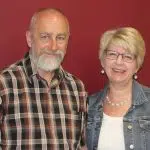
Trust and relationships key to overcoming vaccine hesitancy, says doctor
Second doses of COVID-19 vaccine have outpaced first doses for more than a month, a trend that has troubled public health experts as the province re-opens with only 61.83 per cent of its total population having received an initial jab.
Of those eligible to receive the vaccine in Saskatchewan, 73 per cent of people have received at least one dose.
As far as those still unvaccinated, it would be a mistake to assume that all of them are opposed to getting the shot, according to Dr. Eben Strydom, president of the Saskatchewan Medical Association.
Strydom says only a “small minority” of people are true anti-vaxxers. Others might have already had the first dose but schedules or complacency get in the way of getting a second one.



